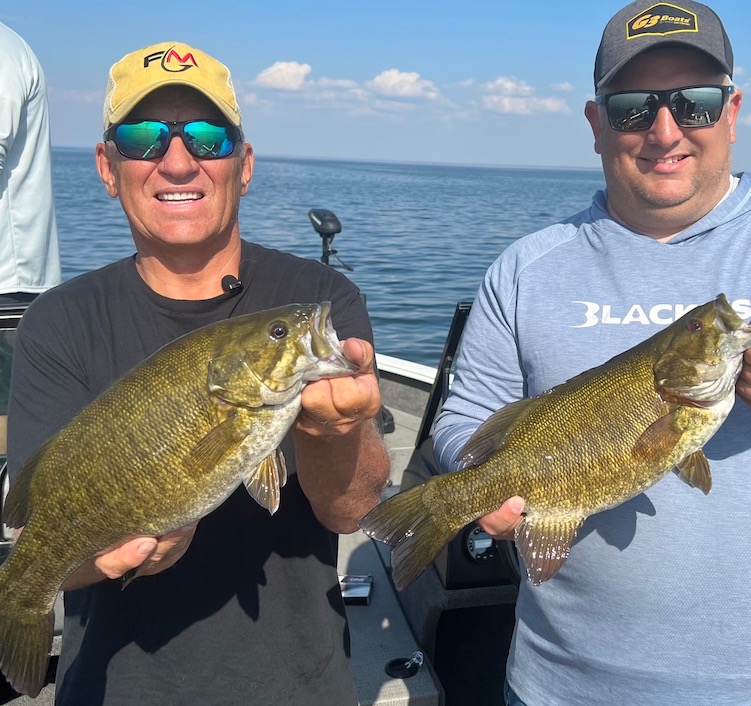Change is Constant!

Change is constant!
By Mike Frisch
With the 2021 open water fishing season mostly in the rearview mirror, I’ve been looking back lately and reflecting upon the just completed season. This reflection has reminded me how our fisheries and the sport of fishing itself continue to evolve. Here is a look at a couple important trends in fishing, at least from one angler’s perspective.
Clear, weedy waters continue to dominate
Simply put, the biggest change to our fisheries and fishing in recent memory has been the unwanted introduction of zebra mussels and their resulting effects. These invasive species are now present in many Midwestern lakes. They filter lake water causing very clear conditions in many lakes and usually increase the presence of weed growth. Clear water and an abundance of weeds can make fishing more difficult, particularly when walleyes are targeted.
Clear water often drives walleyes into thick weeds making them harder to access and ultimately difficult to catch. More and more anglers are targeting weeds and refining presentations that effectively catch those fish. However, I would argue that walleyes holding on traditional structure lacking weeds - like sunken humps and islands - are easier to find and, ultimately, easier to catch for most anglers.
In addition to those holding in weeds, other walleyes in clear water will often head for extreme depths. Some lakes now have walleyes in late summer that school in 40 to 50 feet of water. Those depths certainly aren’t unheard of for walleyes during fall, but it seems that we are seeing those fish deeper and in those depths earlier in the year than before zebra mussels were present.
Deep water walleyes can be seen on sonar and caught using various presentations. The problem, however, becomes that fish pulled from extreme depths often die from barotrauma, injuries that a fish may receive from rapid changes in atmospheric pressure. This makes releasing trophy fish or juvenile fish not yet ready for the frying pan problematic.
How do we as anglers combat clearing waters and these effects? First, when weed walleyes are the target, getting on the water at daybreak is crucial, particularly during summer. Lowlight walleyes will often roam the outside edges of weeds making them more accessible and catchable than they become later in the day when they bury in weeds. And, becoming adept at “weedy” fishing presentations like fishing jigs and plastics or pulling spinners and nightcrawlers over the weed tops is important too.
When deep fish are encountered, the only solution may be to catch enough for your next meal and then pull off a deep school of cooperative fish to prevent injuring and killing fish you would normally release.
The smallmouth bass boom continues!
A positive effect of clearing water may be the increased numbers and size of smallmouth bass present in many lakes. The reason for this population boom is hard to pinpoint, but many believe clearing waters is at least somewhat responsible.
More and bigger fish mean better fishing opportunities. As a “basshead” myself, these opportunities are certainly appreciated as is the diversity that smallmouth bass offer.
For example, fishing partners and I caught smallmouth recently by casting and retrieving Rage Swimmers, high action swimbaits available in smaller sizes that smallmouth love. The next day, I found fish on deeper rocks and used a Baby Z-Too fished on a dropshot rig presented vertically to catch several. The Baby Z-Too is a minnow-imitating soft plastic that offers an enticing quiver and shake that are usually too much for even the most finicky smallmouth bass to refuse!
This diversity of ways bass can be caught, along with the sporting fight they provide make them favorites of veteran anglers like myself as well as those newer to the sport as well.
The sport of fishing is in a constant state of change. Some of the changes are for the better, others not so much. The important thing is how we adapt to change to best take advantage of the good fishing opportunities present across the Midwest.
As always, enjoy your time on the water and remember to include a youngster in your next outdoors adventure!
Mike Frisch hosts the popular Fishing the Midwest TV series. Visit fishingthemidwest.com for more "fishy" stuff.
Photo – Mike Frisch and Tim Emanuel with a couple of smallmouth bass caught recently cast and retrieving Rage Swimmers.

